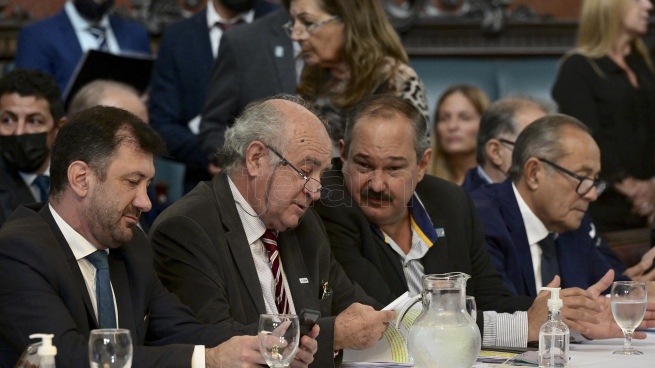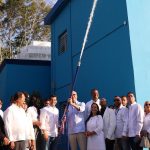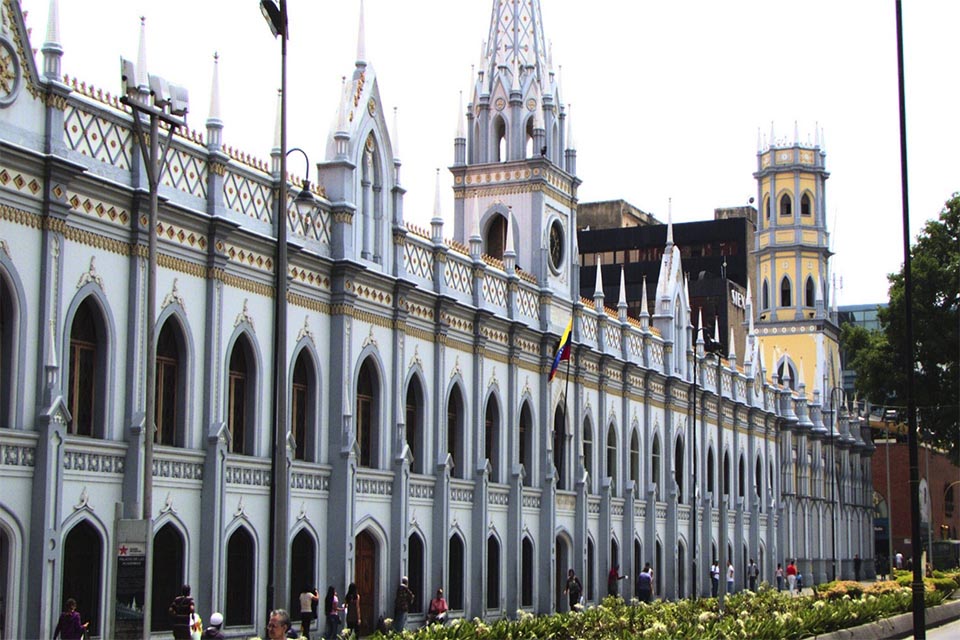Next week will continue the debate on the bill of the Front of All (FdT) that proposes to pay the debt with the IMF contracted by the Government of Mauricio Macri with funds leaked abroad, for which a plenary session of Senate commissions will meet that will deal with this initiative along with another that proposes to modify the Law of Financial Entities to eliminate banking, stock market and fiscal secrecy.
This was confirmed by the president of the General Legislation Commission of the Senate, the official Pablo Bensusan (FdT-La Pampa), in dialogue with Télam.
“Next week we will continue discussing the project. We will invite economists and specialists in the field to give their opinion on the project“, anticipated Bensusán, although he clarified that the list of exponents will continue to be outlined in the coming days.
The senator added that “the agenda is open” and did not rule out the possibility that officials from the Executive Branch might attend.
The initiatives were presented at the end of March by a group of FdT senators, including Oscar Parrilli from Neuquén, Anabel Fernández Sagasti from Mendoza and José Mayans from Formosa.
During the opening day of the debates, the interbloc of Together for Change (JxC) claimed, although it clarified that it does not support the project, the presence in the plenary session of the Minister of Economy, Martín Guzmán, and the head of the AFIP, Mercedes Marco del Pont.
“The project is open to modifications. And, once we exhaust the list of speakers, it will be debated in both commissions. If there is consensus to get a majority opinion, that will be done. But there is no estimated date for that,” assured the pampas senator
The initiatives were presented at the end of March by a group of FdT senators, among whom were the Neuquén oscar parrillithe Mendoza Anabel Fernandez Sagasti and the formoseño Jose Mayans.
The first of the projects creates the National Fund for the Cancellation of Debt with the IMF, while the second modifies Law 21,526 on Financial Entities, which entered into force in February 1977 during the last civil-military dictatorship, with the intention of update and modify the exceptions in terms of banking, stock market and tax secrecy.
“It is a bill that gives the Executive Power a tool that is necessary in these times of economic crisis in the world and of which Argentina is no stranger,” the Pampean senator stated.
In addition, he added that “we must work to get the best project and give the Executive Power a necessary tool to deal with the debt with the Fund.”
“It is a bill that gives the Executive Power a tool that is necessary in these moments of economic crisis in the world and of which Argentina is no stranger”Pablo Bensusan
As he emphasized, “the idea is for the project to be effective, therefore, any modification or contribution to give the Executive Branch more and better tools is welcome.”
“The project is very positive –argued Bensusán–. And it is more than clear: the stand-by loan that the IMF gave the previous government (for Cambiemos) of 45,000 million dollars was mostly leaked because there was an exchange regime that allowed it”.
The senator added that “the issue is those natural or legal persons who took those funds abroad without declaring it; that is, illegally.”
“This project tries to create that fund that will be integrated with penalties or fines that are received from those people,” he explained.
In this sense, he evaluated that it should be “those who benefited from the IMF and, in turn, did not comply with Argentine regulations, those who integrate that fund and, thus, prevent the worker, the merchant, the industrialist, those who bet for Argentina, be the ones who must pay a debt generated by a few for the profit of a few”.
Bensusán questioned that “Of that debt, in infrastructure, nothing was left”and insisted that he “totally agrees with the objectives of the two bills.”
And he stressed that in order to implement the law, if it is approved, it will be necessary to “go find and sanction” to those who “performed that maneuver, to escape money from the country”.
“This is not money laundering. It is a sanctioning regime for people who failed to comply with the tax laws of Argentina,” concluded the senator for La Pampa.


















